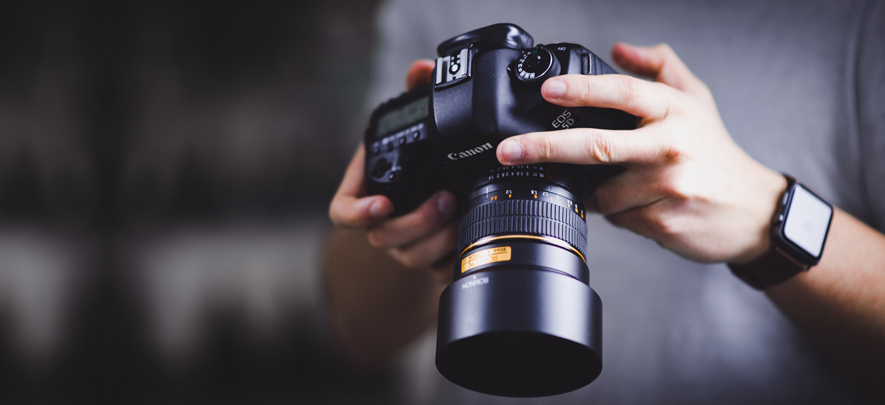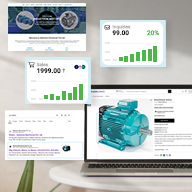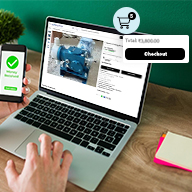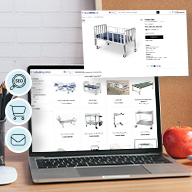DIY product photography guide for small business owners

Ecommerce
273 week ago — 6 min read
Nothing in the world can replace the thrill and excitement of starting a new business. And thanks to modern technology, setting up an e-commerce store or a website for your small business has never been easier. Now, one of the most important aspects of an e-commerce store is having great quality product images.
Humans have been gifted with an amazing capability to visualize everything instantly and a good quality product image is therefore the secret to the success of an e-commerce business. Most importantly, your product images are like virtual windows to your store and you would certainly want to get that right.
Being the one man show in your business, you might have to wear multiple hats at the same time and being on a shoe-string budget might not really allow you to spend much on professional photography.
Also read: 10 things you should do before launching your e-commerce website
Hence, to make it easier, here is a DIY guide to product photography just for you.
Equipment required
1. Camera
You don’t need a highly advanced or expensive camera to begin with. You can very well start shooting on your smartphone as well. Contrary to popular belief that a good camera is the key to great photography, natural light, styling and post processing are more important aspects.
2. Tripod
A tripod is an essential photography equipment that holds your camera firmly thereby restricting its movement and letting you take pictures from different angles.
3. A white background
A white background ensures that your products pop out and each angle is clearly visible. In addition to that, if you want to sell your products on a marketplace like Amazon, then you need to have the pictures clicked on a white background as it is their basic image requirement. You can buy some poster board from any local stationary store and that would work fine too.
Also read: Gift wrapping in e-commerce: A must for the festive season
4. Bounce cards
When you are shooting under natural light, then you must make sure that you use bounce cards to ward of the shadow that forms as a result of the natural light striking the product. You can use a plain white foam board. It’s cheap and effective.
5. Right lighting condition
When you are shooting under natural light, you must make sure that the sufficient bright light is entering your room where you want to capture the photos.
Now that you have the entire equipment ready, let’s move on to the process.
DIY natural light photography
1. The set up
The first stage is setting up everything. Since you are using natural light and a plain white background, choose a window that receives plenty of natural light. Place a table in a way that the product kept on top of it receives the maximum light. Position the reflector in a way that it is placed vertically against the wall (good idea to place your table against the wall). Turn off all the light in the room so that only natural light reached your product. Place your product in the center of the table and then set up your camera.
2. Lighting
Since you are clicking under natural light, it is important to master capturing the right light in order to get that perfect shot. There are two kinds of lighting:
- Soft lighting is more delicate in nature and creates a halo effect. Effective in eliminating harsh shadows.
- Hard lighting has a harder definition and creates more shadows.
For product photography under natural light, therefore it is best to use soft lighting. You can work around different ways to create the perfect amount of light needed for your product photography. Ideally, the light source is from a window, in that case you can use a diffuser to soften the bright light or you can also use a light tent that is easily available in the market to create the perfect environment for clicking good pictures. If the light is too harsh, you can always use a reflector as mentioned above.
3. Angles
It is important to understand the effect of angles in product photography. Let’s understand what the commonly used angles are:
- 90 degree or bird’s eye: This angle is used to click a picture from above. Great for objects such as shoes, tools, cookware etc.
- 45 degree angle or standing eyesight: This angle is used when you want to focus on dimensions. Can be used for any kind of products.
- 0 degree angle or table level: This angle is suitable for clicking pictures of bottles, containers, glass jars etc.
4. Composition
Another important aspect of great product photography is composition. It is the placement of objects that complements your products. Especially helpful if you are photographing multiple objects at the same time. You can also use props to enhance the visuals of the picture.
5. Processing the pictures
Post processing involves retouching the pictures to make it upload ready. No matter which device you are using, you need to do a bit of post processing in order to get that flawless picture of your products. You can apply basic editing filters to adjust the tone, clarity and contrast of the image. But steer away from special effects as they can distort the image quality.
You might not get the perfect shot in the first go but with practice and patience you will get there. Take your small business to the next level using your product photography and thank us later!
Also read: Are you forgetting your repeat customers?
Image source: unsplash.com
Posted by
GlobalLinker StaffWe are a team of experienced industry professionals committed to sharing our knowledge and skills with small & medium enterprises.
Network with SMEs mentioned in this article
View GlobalLinker 's profile
SME Inspirations
Most read this week

















Comments (2)
Please login or Register to join the discussion